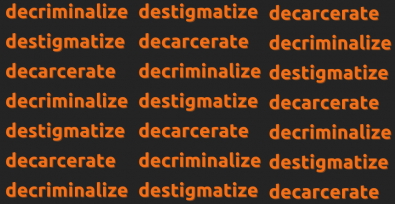As we observe International Sex Workers’ Rights Day, news from California gives us pause to reflect.
California, once hailed as a leader in progressive policies is now attempting to take a step backward in its commitment to protecting sex workers’ rights. In 2022, we worked alongside partners in California to successfully repeal an archaic loitering law that targeted sex workers.
We pushed for this change because laws that deny sex workers protections prevent them from being able to work safely, increasing the risk of violence and exploitation. Now, the recent legislative actions are pushing to reintroduce the act of loitering for the purpose of engaging in sex work as a crime.
This only puts all those across the spectrum of agency in the sex trade at risk of arrest and detention and prevents them from seeking support from authorities in the situation that they are being trafficked into the industry.
Initial victory: The Safer Streets for All Act
In July 2022, California’s Governor Newsom signed the Safer Streets for All Act (SB 357) into law. This marked a significant victory for human rights advocates, including the Freedom United community and Cast (Coalition to Abolish Slavery & Trafficking). This legislation repealed section 653.22 of California’s penal code, a law that disproportionately affected trafficking survivors and sex workers.
In practice, this law (653.22) prevented survivors of trafficking from moving on with their lives, in particular accessing housing and jobs, pushing them to stay in the sex industry whether or not they would choose to due to their acquiring of a criminal record.
Leigh LaChapelle, Associate Director of Survivor Advocacy at Cast, a partner of Freedom United, stated:
“Traffickers rely on these arrests to criminalize victims so that they are trapped and unable to access safety due to their criminal records. The arrests make individuals being trafficked even more vulnerable to continued exploitation.”
The Safer Streets for All Act empowered trafficking victims to seek support from authorities by removing the fear of penalty, and it also provided a mechanism for clearing their names from criminal records.
Freedom United and Cast’s campaign success
The Freedom United community played a pivotal role in the repeal of the archaic loitering law. Partnering with Cast, we urged the California Senate and Governor to sign the Safer Streets for All Act into Law.
Our community rallied, with activists signing petitions and calling the Governor’s office, ultimately securing a victory that made California a trailblazer in supporting trafficking victims and survivors.
A shameful backtrack
Fast forward to February 2024, and progress has taken a disheartening step backward. California legislators are reintroducing bills that would criminalize loitering for the purpose of engaging in the sex trade. In particular, AB 2646 (Ta), AB 2034 (Rodriguez), and SB 1219 (Seyarto) have raised concerns among activists and advocacy groups. LaChapelle emphasizes that arresting individuals for ‘prostitution’ is counterproductive, and traps trafficking victims in a cycle of exploitation and vulnerability.
“Countless survivors of trafficking have said that being arrested was not only traumatizing and revictimizing, but created insurmountable barriers to seeking employment, safe housing, public benefits and immigration relief. Among survivor groups, it’s often said that the fastest way to trap someone in a life of exploitation is to arrest them for it. While we are facing devastating cuts to victim service provider funding, California is in danger of reverting back to the outdated practice of arresting survivors as a means of identification. This will ultimately harm survivors and increase vulnerability.
Data across the state reveal significant racial and gender disparities in arrests under the old loitering law. Trans and cis women of color, not sex buyers or traffickers, were overwhelmingly targeted. These arrests, often orchestrated by traffickers, serve as a tool to silence sex workers and marginalized communities, as well as to coerce victims through criminalization into sexual exploitation, a form of trafficking.
The fight is not over
International Sex Workers Rights Day symbolizes solidarity and highlights the need to protect the rights, dignity, and safety of sex workers, and to empower sex workers who are trafficked into the industry to come forward without fear of criminalization. However, the recent legislative developments in California underscore the persistent challenges faced by sex workers, even in regions considered progressive.
California’s journey from repealing an oppressive loitering law to potentially criminalizing it once again is a stark reminder of the ongoing challenges in advocating for the rights of marginalized communities, including sex workers and trafficking victims, as well as survivors of exploitation – a fight that we will never give up on.







Sex workers are real people and should be protected from abuse. That is their Constitutional right as human beings!